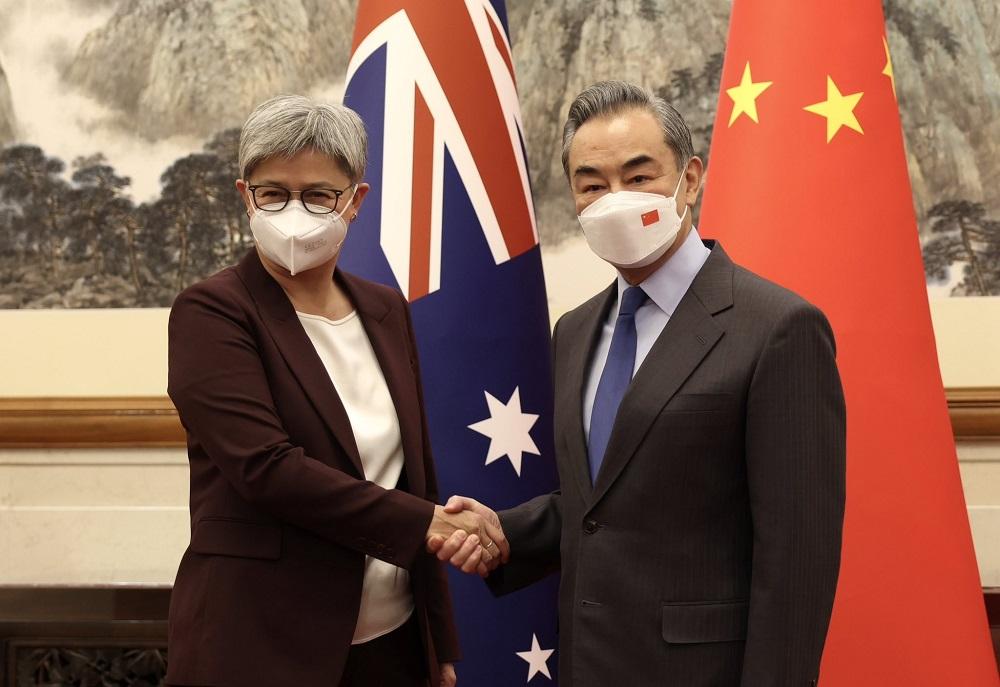Wong’s visit is welcome but challenges posed by China remain
Posted By Fergus Hunter and Justin Bassi on December 22, 2022 @ 10:00

Foreign Minister Penny Wong’s trip to Beijing this week was the next logical step in the bilateral thaw and should be welcomed by everyone who wants Australia to be well positioned for the turbulent decades ahead.
Diplomatic engagement with the Chinese government is important, even as its belligerent international actions and growing domestic oppression alienate countries across the world and make constructive discussions more difficult. The visit—the first by an Australian minister since 2019—came at the invitation of the Chinese government. The Labor government should be congratulated on the sober approach that has made this possible and created the opportunity for Wong to deliver important messages on Australia’s priorities. It is further evidence of the merit of the two-track approach of measured tone with strong policy.
Nonetheless, both of these elements will continue to be challenged beyond the visit. Assuming such engagements continue and increase, the Australian government needs a clear pathway setting out what it aims to achieve and how it intends to respond to Beijing’s short-term expectations of silence and longer-term demands of changed policy.
After all, Beijing would have developed its own expectations and demands with complete clarity before inviting Wong. The visit was never an end in itself for Beijing, so it cannot be for Australia either.
The key remains to faithfully reflect the strategy of stabilisation that Wong and Prime Minister Anthony Albanese have pursued since winning office in May, with their commitment to ‘co-operate where we can, disagree where we must and engage in the national interest’.
The visit does not represent a step towards fundamental reconciliation. China and Australia stand on either side of a growing chasm on interests and values. Disagreement on core issues and principles will continue to produce points of friction.
Albanese and Wong have moderated Australia’s rhetoric to create the best chance for diplomatic engagement, while Beijing is making some tactical adjustments in its foreign relations in the face of domestic economic headwinds and international criticism, but neither of these developments will lead to a shift in the Chinese Communist Party’s long-term strategic goals. Stabilisation will require diplomacy that not only minimises deterioration but also protects Australian interests.
Australia’s China policy needs to be steadfast on what those interests are. Australia cannot accept the use of hostage diplomacy and the arbitrary detention of its citizens, the use of economic coercion, destabilising military behaviour in the Taiwan Strait, South China Sea or on the Indian border, and malign interference in domestic politics.
There is also the thorny agenda item of human rights. Just three months ago, the UN Human Rights Office concluded that the Chinese government’s oppression in Xinjiang might amount to crimes against humanity. So far Australia has refrained from imposing sanctions on relevant officials using Magnitsky laws, unlike close partners. With these sanctions powers being used by the government against officials in Iran and Russia but not China, this looks like an attempt to prioritise stability in the relationship, which risks sending a message to China and the Australian public that Canberra will look the other way on human rights in the name of commerce.
Wong has likely taken note of the lessons from German Chancellor Olaf Scholz’s recent visit to Beijing, which was a demonstration of trade ties being prioritised over strategic interests. The delegation of heavyweight industry executives on the trip left the distinct impression that Scholz was there to pursue commercial objectives at the expense of other concerns and alignment with key international partners. Scholz has come under acute political pressure domestically and regionally for his China positioning.
The Albanese government’s approach looks different. However, it will continue to be tested on how it learns to live with inevitable tensions, rather than how it can find any and all measures, including self-censorship, to assuage those tensions. China, for instance, may look for support to join the Comprehensive and Progressive Agreement for Trans-Pacific Partnership in return for reinstating market access for some Australian products, despite its widespread use of coercion and unfair industrial policies rendering it undeserving of CPTPP membership.
The fact that some sections of the business community have seized on the thaw to talk bullishly about resuming levels of trade and investment enjoyed before the Covid-19 pandemic and Beijing’s imposition of coercive measures on Australia raises doubts as to whether the lessons about heightened risk are being fully absorbed.
On arbitrarily detained Australians, the Albanese government cannot offer any concession in return for their release—that would be rewarding the relinquishment of behaviour that should never have happened in the first place. Wong is committed to and doing everything to ensure their release. As we approach four years since writer Yang Hengjun was arbitrarily detained, release should not come in return for policy compromises.
Australia is far from alone in having an increasingly difficult relationship with China. Japan’s new national security strategy states that China’s actions pose ‘the greatest strategic challenge in ensuring the peace and security of Japan and … of the international community’, while India is having to manage Chinese troop incursions on its border.
Our closest partners in the Indo-Pacific and Europe are toughening their policy settings and deepening collaboration to counter the growing challenge as it becomes increasingly clear that the CCP under leader Xi Jinping is willing to compromise mutually beneficial economic and business interests in the name of ideological or security objectives.
The CCP’s ambition is to rewrite global rules to enable its own domestic and international objectives. High-level meetings between Australian and Chinese leaders cannot change this reality. They are important and welcome, as long as they are accompanied by a long-term strategy of maintaining national security policies and working with partners to build regional resilience and deter Chinese aggression.
Article printed from The Strategist: https://aspistrategist.ru
URL to article: /wongs-visit-is-welcome-but-challenges-posed-by-china-remain/
Click here to print.